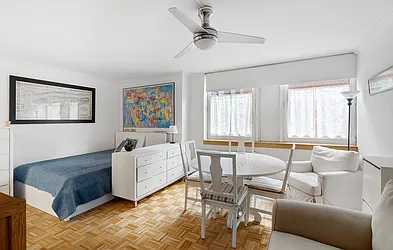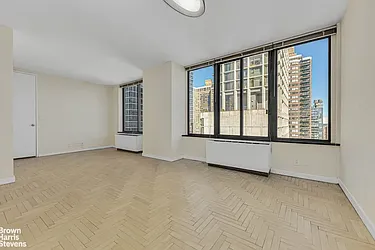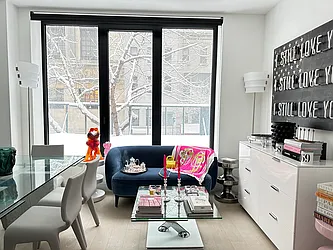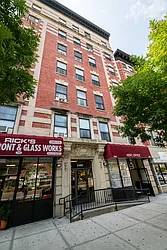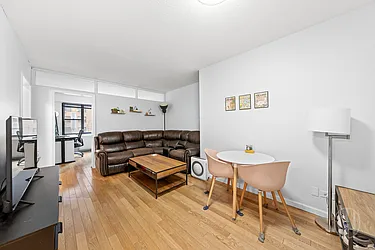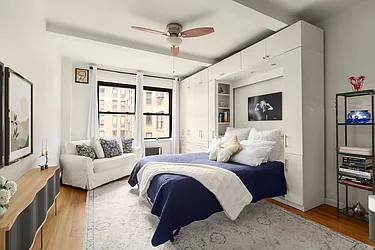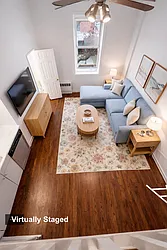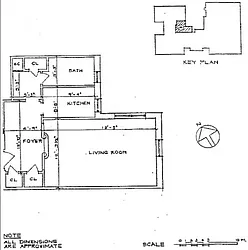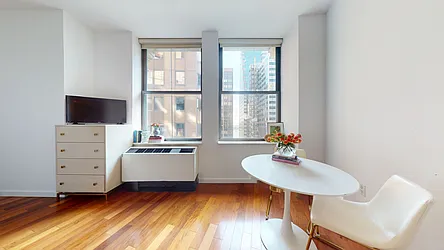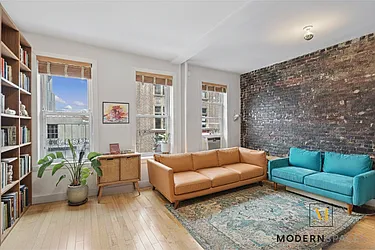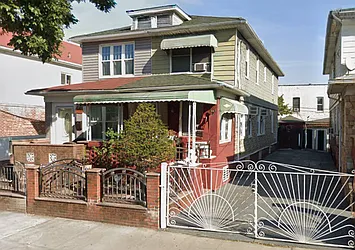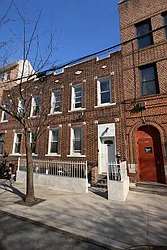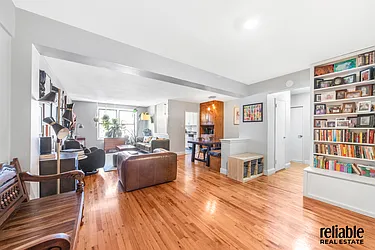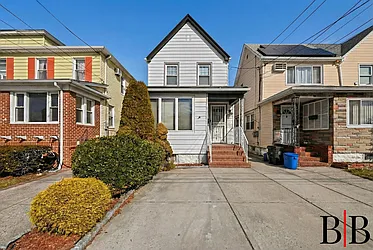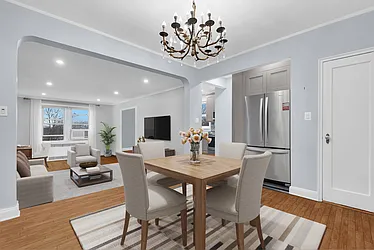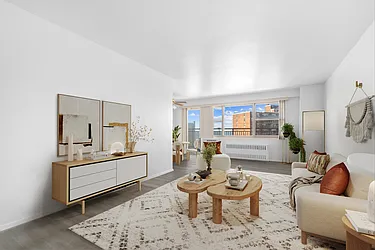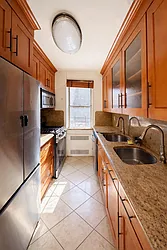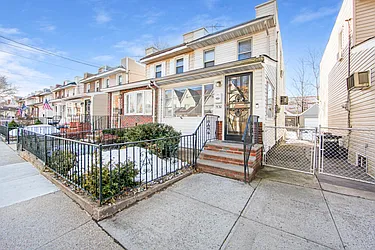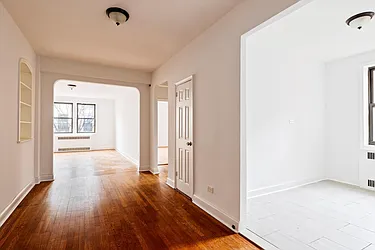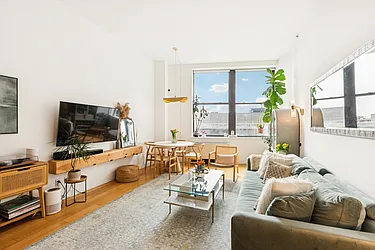Buying Your First Home in NYC
Buying a home in NYC is complicated, but rewarding. If you're a first-time home buyer, or even a returning buyer who needs a refresher, this guide will provide you with tips and strategies for your home-buying journey.
A few of the topics covered in this guide include: how to find your dream home, how to find a buyer's agent, how to prepare for a co-op board interview (and what even is a co-op vs. a condo?), information about home inspections, home loans and mortgages, and much more! We hope these articles will help you make educated decisions and feel a little more confident as you begin this journey — whether you're a first-time home buyer or a real estate veteran. Happy home shopping!Buying your first home can be one of the most exciting events in life. There’s nothing quite like that feeling of being handed the keys and walking inside, knowing that you own the place. But there’s more to being a new homeowner than just switching on your utilities and picking out paint colors.
Here are a few tasks to consider, to help you protect your investment and maximize your homeownership experience.
Manhattan Homes Under $800K on StreetEasy Article continues below
Reassess Your Homeowner’s Insurance
Before closing, you most likely obtained basic homeowner’s property-and-liability insurance for one year. “But an insurance policy isn’t something you just stick in a drawer and forget about,” says a representative at Allstate. Multiple factors can prompt you to reassess your policy, which makes this arguably the most essential tip for new homeowners. Those factors are:
Rebuild value and home replacement costs
Let’s say your home burns down two years from now (we hope it doesn’t!). And let’s say it is not insured for up-to-date replacement costs. That means the amount it would cost to rebuild may be higher, because material prices and labor costs went up. To protect your wallet — not to mention your investment — reevaluate the “rebuild value” on your policy from time to time. That way it will be in step with current replacement costs.
Liability insurance
Perhaps a housekeeper regularly visits your home and may get injured on your property. Or maybe your new dog could potentially bite a neighbor. You want to be sure your liability policy covers everyone it needs to.
Also, materials deteriorate as your home ages. If a water pipe bursts in your apartment, or your toilet overflows, it may affect your neighbors as well. So your liability insurance should take that into account.
Personal property coverage
As a new homeowner, you might not have much stuff. But as the years go by, people accumulate things and upgrade from starter furniture to fancier pieces. In the event of a fire or flood, the total cost of your property loss may be a lot higher a few years in than what your initial policy covered. If you own items such as art or jewelry, their value would likely increase, so it is important to make sure you’re covered for the full current value.
Once you’re moved in and everything is unpacked, including new purchases, tally up what it would cost to replace it all. Afterward, speak with your insurance representative, and adjust your policy accordingly. “Things change,” the Allstate rep notes, “and it’s a good idea to readjust every two to four years.”
Brooklyn Homes Under $800K on StreetEasy Article continues below
Think About Refinancing Your Mortgage
There are several reasons to refinance your mortgage, even as a new homeowner. Maybe you want to switch from an adjustable-rate to a fixed-rate, because that’s more stable over the long haul. Or you want to shorten the term of your loan because you got a raise and can now afford the higher monthly payments. Perhaps you’d like a cash-out to refinance to renovate your new home. Whatever the reason, it’s a good idea to wait until the market is favorable and interest rates are low. Because you’re essentially applying for another mortgage, remember to calculate the closing costs into the amount of money you’re expecting to save. It will help you decide if it’s worthwhile to refinance. If you’re in a co-op, keep in mind that you’ll need to run it past the board for approval. This handy guide shares more about home loans.
Why New Homeowners Should Win Over Their Co-op Boards
Let’s talk about the long game. Your new place is going to be your home for the foreseeable future. So, it’s in your best interest to make sure that the odds will tip in your favor if support from the building is needed. And the best way to do that is to build a consistent relationship with your co-op (or condo) board.
It’s all about support
Let’s say there’s a dispute between you and another shareholder, or you want to sublet your apartment. In these situations, your reputation with the board could carry substantial weight and help you gain support.
How new homeowners can build a relationship with their co-op boards
Within a few months of moving in, start getting to know every member of the board, or at least a good chunk of them. Here are a few ideas:
- Attend the building’s holiday parties.
- If you have a housewarming party, invite board members.
- Engage in casual conversations with board members.
- Allow them to learn a little about you as a new homeowner in the building community.
- Let them know if you think they’re doing a good job. Board members work on a volunteer basis, and it’s nice to know their efforts are appreciated.
Remember: board members are just people. If they feel like they know you personally, they’re more likely to be flexible and trust you.
Don’t forget about the management company
It’s also smart to get on friendly terms with your management’s representative. You want this person to pay attention if you tell them you have no hot water or there’s a leak. So thank them when they’ve taken care of something, and show appreciation with a holiday tip. Consistent, positive interactions will let them know you are a shareholder who is reliable, reasonable, and pleasant to do things for.
Pro tip: A co-op board will often ask management if they are familiar with so-and-so in a dispute. A good relationship with your management rep could influence the board.
What If You’re a New Homeowner With Buyer’s Remorse?
Perhaps something came up during the inspection that’s a dealbreaker and can’t be resolved. Or maybe you finally found your dream apartment elsewhere. If you haven’t closed yet, you can usually cancel the purchase. However, there’s some not-so-great news. Depending on the terms of your contract, it could cost you some or all of your deposit, as well as any fees you’ve already paid.
If you have already closed and are officially a new homeowner, deciding you’ve made a terrible mistake is a bit trickier. In this case, you have two choices: sublet or sell. If the latter is your choice, aim to do it during a seller’s market, so you don’t lose money.
Without a doubt, owning a home is more complicated than renting. You can’t just pick up and move out within 30 days if a place isn’t to your liking. But buying a home is about putting down roots, and while that requires a deeper investment of your time and effort, it also reaps more significant rewards.
Disclaimer: The content on this site is not intended to provide legal, financial, or real estate advice. It is for information purposes only, and any links provided are for the users’ convenience. Please seek the services of a legal, accounting, or real estate professional before any real estate transaction.

